Ahmedabad’s real estate market has seen an exceptional transformation over the past few years. Once known for its industrial and historical significance, the city has evolved into a bustling metropolitan area. This transformation, fueled by rapid urbanization, infrastructural developments, and increasing investor interest, has made Ahmedabad a prime destination for both residential and commercial real estate investments.
As the demand for real estate continues to grow, the investment landscape has also changed. One of the most notable trends emerging in this space is fractional ownership—a concept that’s not only changing how people invest in property but also making real estate more accessible to a broader range of investors. In this blog, we will explore how fractional ownership is reshaping real estate investments in Ahmedabad, making them more accessible, profitable, and hassle-free for investors of all levels.
Understanding Fractional Ownership: What Is It?
Fractional ownership is a co-investment model in which multiple investors pool their resources to collectively own high-value real estate assets. Traditionally, purchasing a property in Ahmedabad required significant capital, often making real estate an exclusive domain for the wealthy. Fractional ownership breaks this barrier, enabling multiple investors to share the cost of a single property.
Each investor owns a fraction or percentage of the property and is entitled to proportional rights—whether that be rental income or a share of the capital appreciation. This model has gained immense popularity in the commercial real estate and luxury property sectors in Ahmedabad, where demand for high-value assets continues to rise.
Why Fractional Ownership Is Gaining Popularity in Ahmedabad
Fractional ownership has become increasingly popular in Ahmedabad for a variety of reasons. As the city experiences rapid commercial growth and rising real estate prices, fractional ownership provides a unique way for investors to enter the market.
1. Lower Financial Burden and Higher Accessibility
Real estate investments traditionally require significant upfront capital, making them inaccessible for many people. Fractional ownership eliminates this financial hurdle by allowing investors to own a portion of a high-value property without shouldering the entire financial burden. Whether it’s a commercial property on SG Highway or a luxury apartment in Prahlad Nagar, fractional ownership enables a wide array of investors to diversify their portfolios.
2. Diversification of Investment Portfolio
For seasoned investors, diversification is key to minimizing risk. Fractional ownership allows investors to spread their capital across different high-value properties rather than tying up all their funds in a single asset. This diversification helps minimize exposure to risks tied to specific properties or locations while maximizing potential returns.
3. Steady Rental Income and Capital Appreciation
With fractional ownership, investors earn a share of rental income based on their ownership percentage, and they also stand to benefit from long-term capital appreciation. Ahmedabad’s expanding commercial sector—along with increasing demand for office spaces and retail properties—ensures a steady stream of rental demand, making fractional ownership a lucrative opportunity for investors.
4. Favorable Economic Environment
Ahmedabad’s real estate market has seen consistent growth due to the city’s economic development. The presence of key industries, such as textiles, IT, and manufacturing, has led to a rise in both commercial and residential demand. Fractional ownership allows investors to take advantage of this growth without the need for large capital outlays.
How Fractional Ownership Works: A Step-by-Step Guide
The process of fractional ownership involves several clear steps. Let’s break down each stage of the investment process, so you understand how this model works:
1. Selection of Property
Investors begin by selecting a high-value asset such as a commercial office space, a luxury apartment, or a retail property. The property must be in a prime location to ensure consistent demand and strong returns.
2. Pooling of Funds
Once the property is selected, a group of investors comes together to pool their resources. Each investor contributes a portion of the total cost based on the percentage of ownership they wish to acquire. This collective funding model makes premium properties more accessible to individual investors.
3. Legal Structuring
To legally structure the ownership, the property is held under special-purpose vehicles (SPVs) or trusts. These legal entities ensure that each investor’s rights and responsibilities are clearly defined and that the property is managed effectively.
4. Property Management
A professional property management firm is typically appointed to handle day-to-day operations, such as tenant acquisition, property maintenance, rental agreements, and tenant relations. This ensures that investors do not have to deal with the complexities of property management.
5. Returns and Exit Strategy
Investors earn a share of rental income based on their ownership percentage. Additionally, they may sell their fractional ownership stake for capital gains if the property appreciates in value. Many fractional ownership platforms offer flexible exit strategies, allowing investors to sell their stake either to new buyers or through the platform.
Key Benefits of Fractional Ownership in Real Estate Investments in Ahmedabad
Let’s take a deeper look at the primary benefits of fractional ownership in Ahmedabad’s real estate market:
1. Access to High-End Properties
Premium commercial properties in Ahmedabad, such as those on SG Highway, Ashram Road, and Prahlad Nagar, often require large investments that may be out of reach for many individual investors. Fractional ownership allows mid-level investors to gain exposure to such prime assets without making huge financial commitments.
2. Reduced Risk and Higher Liquidity
One of the significant advantages of fractional ownership is the sharing of risk. Since multiple investors co-own the property, financial risk is spread across all participants, reducing the burden on any single investor. Additionally, fractional ownership platforms often offer liquidity options, allowing investors to sell their stake when needed, unlike traditional real estate investments that are more illiquid.
3. Hassle-Free Property Management
Investing in real estate often comes with the challenge of managing the property. With fractional ownership, investors benefit from the expertise of professional management firms that handle everything from tenant acquisition to maintenance and legal formalities. This makes it a hassle-free experience for investors, particularly those with limited knowledge or time to manage properties.
4. Higher Returns Compared to Traditional Investments
Real estate is known for offering high returns on investment, especially in a city like Ahmedabad, where the demand for both commercial and residential properties is on the rise. Fractional ownership allows investors to benefit from rental income and capital appreciation, often providing higher returns compared to traditional investment avenues like fixed deposits or stocks.
Fractional Ownership vs. REITs: Which One Should You Choose?
Fractional ownership is often compared to Real Estate Investment Trusts (REITs), but there are notable differences between the two models.
1. Ownership vs. Shares
With fractional ownership, investors directly own a portion of a physical property. In contrast, REITs allow investors to buy shares in a company that owns and manages income-generating properties. The direct ownership in fractional ownership typically offers greater control and potential for capital appreciation.
2. Liquidity
REITs are traded on stock exchanges, providing higher liquidity for investors who wish to buy or sell shares. On the other hand, fractional ownership involves direct property ownership, which can offer higher returns but with less liquidity. While fractional ownership platforms allow an exit strategy, selling a stake may take longer compared to the immediate liquidity of a REIT.
3. Control
Investors in fractional ownership have more control over the property, including the ability to influence decisions regarding property management and maintenance. In a REIT, investors are simply shareholders and do not have any direct control over property-related decisions.
Challenges and Risks of Fractional Ownership
While fractional ownership offers numerous advantages, it’s important to be aware of the challenges and risks associated with the model.
1. Limited Control Over Property Decisions
Since fractional ownership involves multiple investors, major decisions regarding the property must be made collectively. This may cause delays in decision-making and lead to disagreements among investors.
2. Market Fluctuations
Like any investment in real estate, fractional ownership is subject to market fluctuations. Economic downturns, changes in interest rates, or shifts in demand for properties can impact rental income and capital appreciation.
3. Regulatory Considerations
Investors must ensure that the fractional ownership investment complies with local real estate laws and tax regulations. Proper due diligence is essential to ensure that all legal structures are in place.
The Future of Fractional Ownership in Ahmedabad
As Ahmedabad continues to expand commercially and residentially, fractional ownership is poised to play an even larger role in the city’s real estate market. The increasing interest from institutional investors, technology-driven platforms, and start-ups is helping to push fractional ownership into the mainstream.
The growing demand for co-working spaces, retail properties, and high-end residential units in Ahmedabad creates a fertile ground for fractional ownership investments. As the city’s real estate landscape evolves, fractional ownership offers a viable and lucrative investment option for both individual and institutional investors.
Conclusion: Should You Consider Fractional Ownership in Ahmedabad?
If you’re an investor looking to enter Ahmedabad’s booming real estate market without committing large amounts of capital, fractional ownership offers an excellent opportunity. It provides accessibility, passive income, portfolio diversification, and access to high-value properties—all while reducing investment risk.
By exploring fractional ownership, you can tap into the potential of Ahmedabad’s real estate market without the financial strain of traditional property purchases. Contact AroundTown Realty today to learn more about top fractional ownership opportunities that match your investment goals.
FAQs
Is fractional ownership legal in India?
Yes, fractional ownership is legal in India. It operates through well-structured legal entities such as Special Purpose Vehicles (SPVs) or trusts. These entities ensure that each investor’s rights and obligations are clearly defined, making the investment process secure and transparent.
How does fractional ownership compare to traditional real estate investment?
Fractional ownership allows investors to own a portion of a high-value property with a lower initial capital outlay, while traditional real estate investments typically require full ownership of the property. With fractional ownership, you can diversify your investments across multiple properties, reducing risk, whereas traditional ownership ties up all your capital in a single asset.
What are the risks associated with fractional ownership?
Like any investment, fractional ownership carries some risks. These include market fluctuations that can affect property values, limited control over property decisions (as major decisions are often made collectively), and reliance on property management companies to handle day-to-day operations. It’s essential to carefully review legal structures and understand all the potential risks before investing.
Can I sell my fractional ownership stake anytime?
Yes, most fractional ownership platforms provide an exit option, allowing investors to sell their stake either to new buyers or through the platform. However, the timeline for selling your stake may vary based on the platform and market conditions. It’s advisable to understand the exit terms before committing to an investment.
How can AroundTown Realty help with fractional ownership investments in Ahmedabad?
AroundTown Realty offers expert guidance on fractional ownership investments, helping you identify lucrative properties, navigate legal structures, and ensure a smooth transaction. With a focus on high-value commercial and luxury properties in Ahmedabad, we provide a personalized investment experience tailored to your goals.









